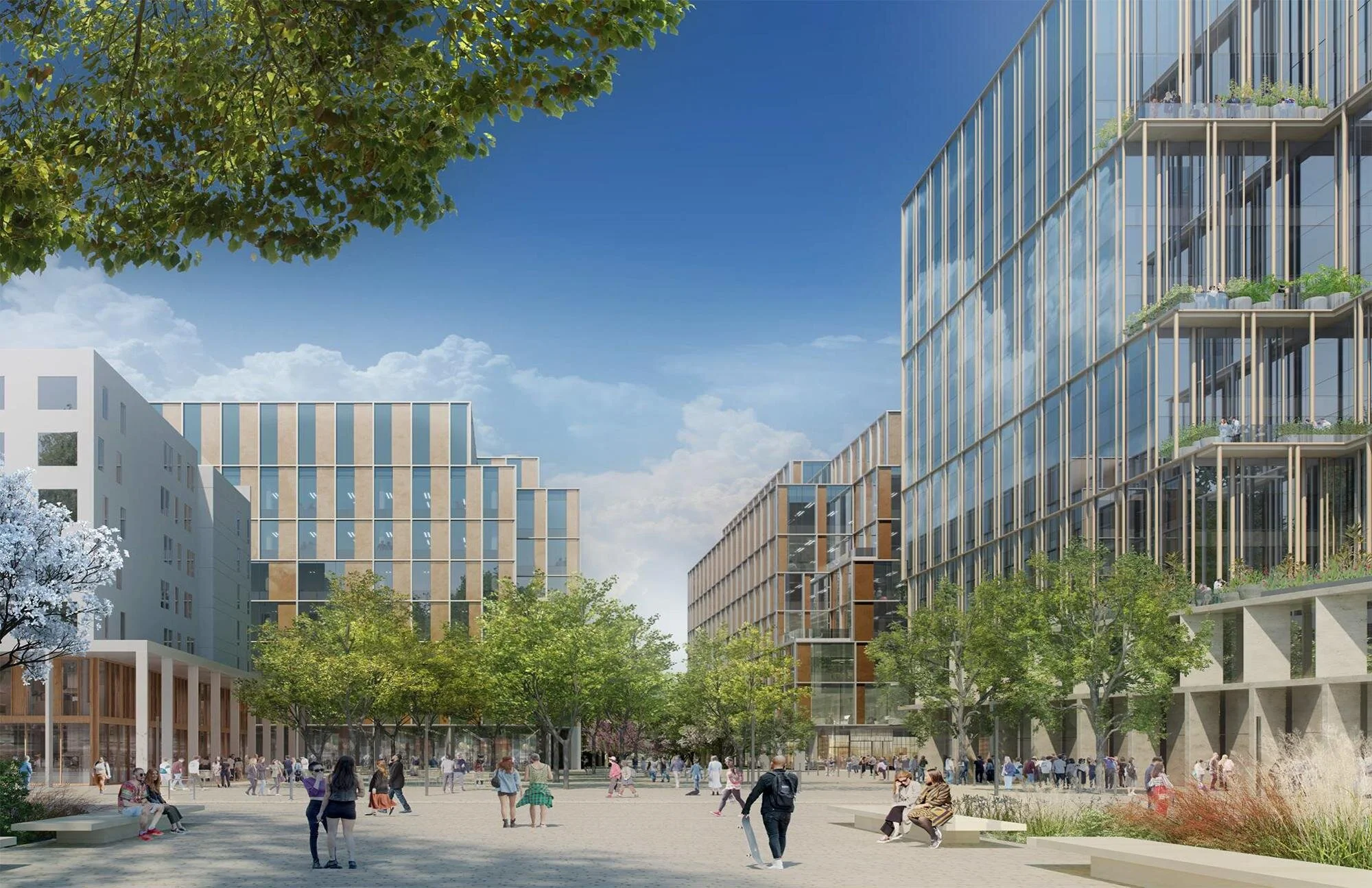Aggie Square settlement means future projects will include affordable housing, other community benefits
Whatever it is, the way you tell your story online can make all the difference.
Development projects that receive a significant public investment by the City of Sacramento will have to be accompanied by agreements to deliver neighborhood benefits under a legal settlement approved Tuesday by the Sacramento City Council.
The document approved by the City Council Tuesday settles a legal challenge to the planned UC Davis Aggie Square innovation campus that was filed by the community group Sacramento Investment Without Displacement, or SacIWD. The UC Regents, representing UC Davis, are also a party to the settlement agreement.
The adoption of the legal settlement follows a vote by the Council in early April to approve a Community Benefits Partnership Agreement for Aggie Square that was crafted by Mayor Steinberg and Councilmembers Eric Guerra and Jay Schenirer alongside leadership from UC Davis and Aggie Square developer Wexford Science + Development.
The Community Benefits Partnership Agreement for Aggie Square, which is supported by SacIWD, promises a minimum of $50 million in City investment for affordable housing along the Stockton Boulevard corridor. The first housing project was scheduled for a vote by the Council on Tuesday.
The CBPA also commits Wexford to the goal of filling at least 20 percent of the 3,600 permanent jobs at Aggie Square with local residents and providing training for those jobs. In addition, the parties pledge to improve biking, walking and transit access around the UC Davis Sacramento campus on Stockton Boulevard.
“The community spoke, the community pushed and the community delivered,” Mayor Steinberg said. “We took a lawsuit and created a model for how to do economic growth the right way for our city, for California and for the country.
“We’re going to get right to work and put forward a city-wide ordinance in collaboration with SacIWD and others.”
This affordable project on Stockton Boulevard will help fulfill Aggie Square commitment.
Tuesday’s vote means that the City will negotiate such community benefits agreements as a matter of course for projects receiving significant public participation. The City will work with SacIWD to develop an ordinance that defines what projects will be covered and how, and to bring it back to Council by January 2022.
The ordinance will include small business protections, anti-displacement strategies and affordable housing construction..
The City also agreed to work with SacIWD to make sure the obligations of the Aggie Square CBPA are fulfilled, including participating in two community meetings per year that will be organized by SacIWD.
“This agreement is the collection of many efforts and commitments by stakeholders and the community in ensuring that the Aggie Square project uplifts the neighborhoods by employing our neighbors, supporting our local businesses, and making a commitment to build more affordable housing and ensuring safety and mobility on our communities., said Councilmember Guerra, who along with Vice Mayor Schenirer represents neighborhoods near the planned Aggie Square campus on Stockton Boulevard.
“We’ve come a long way since the announcement of Aggie Square two years ago, and I look forward to seeing how it is shaped by community voices to truly benefit neighborhoods as a result of the CPBA and the SacIWD settlement,” Schenirer said.





